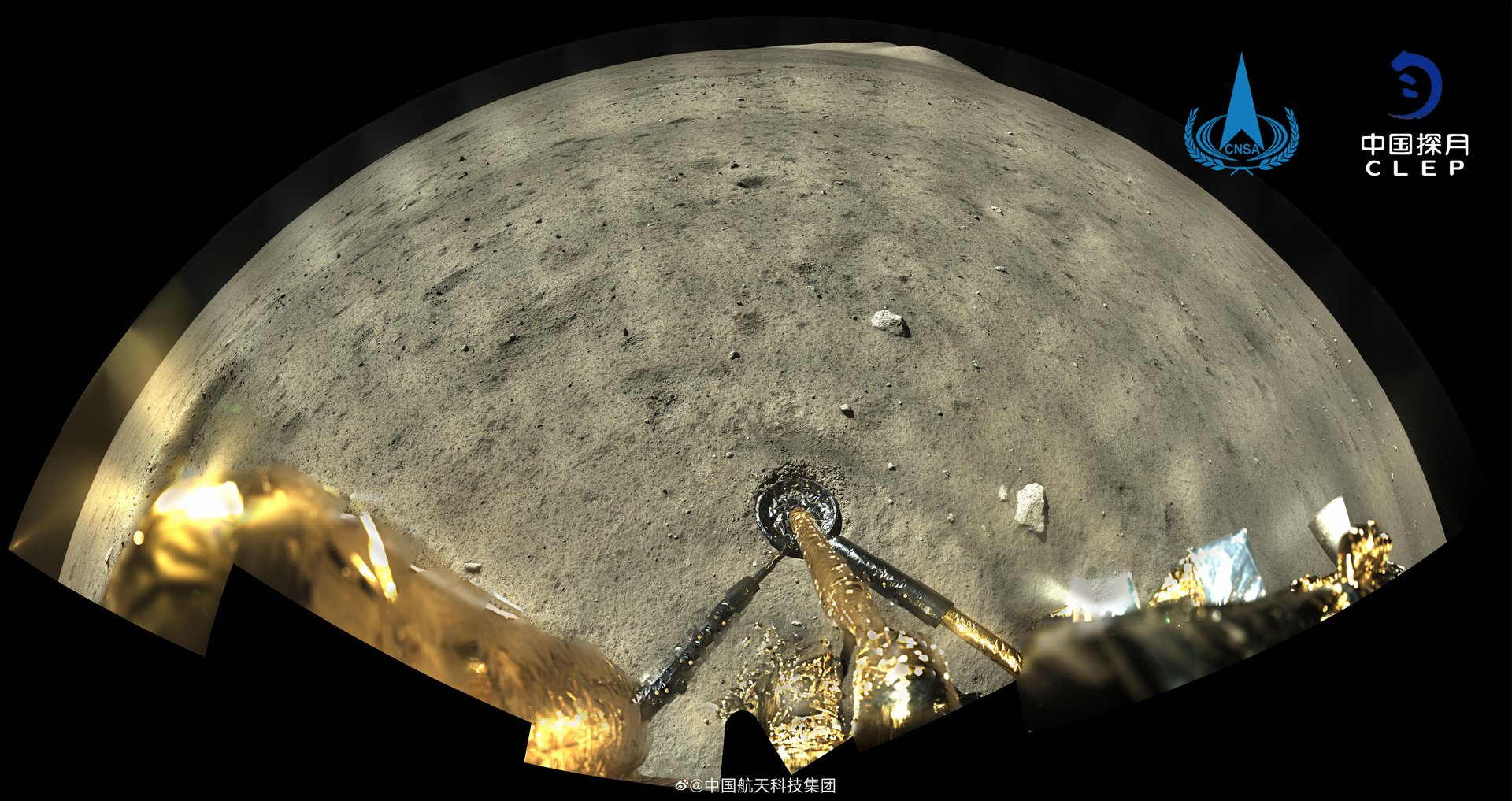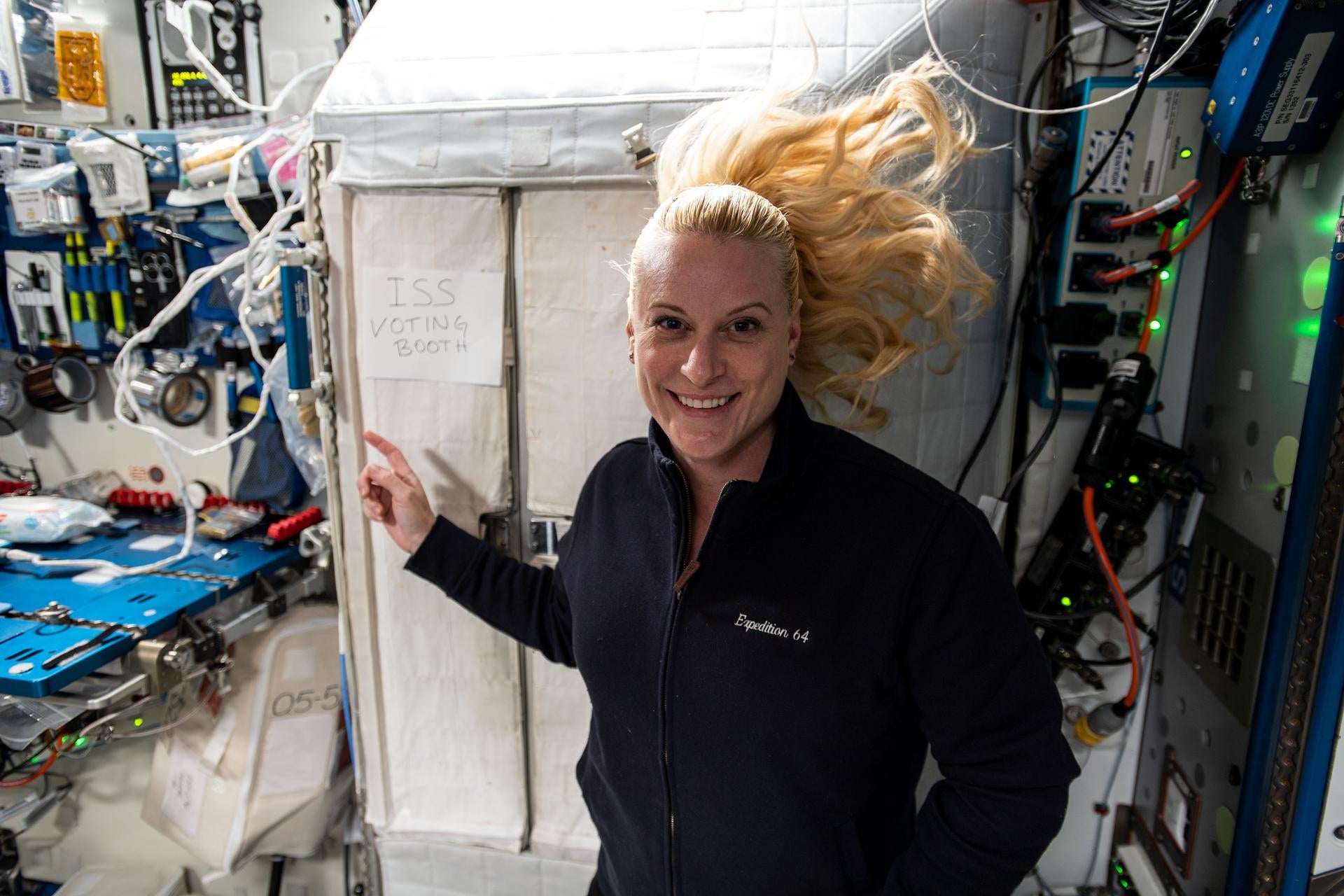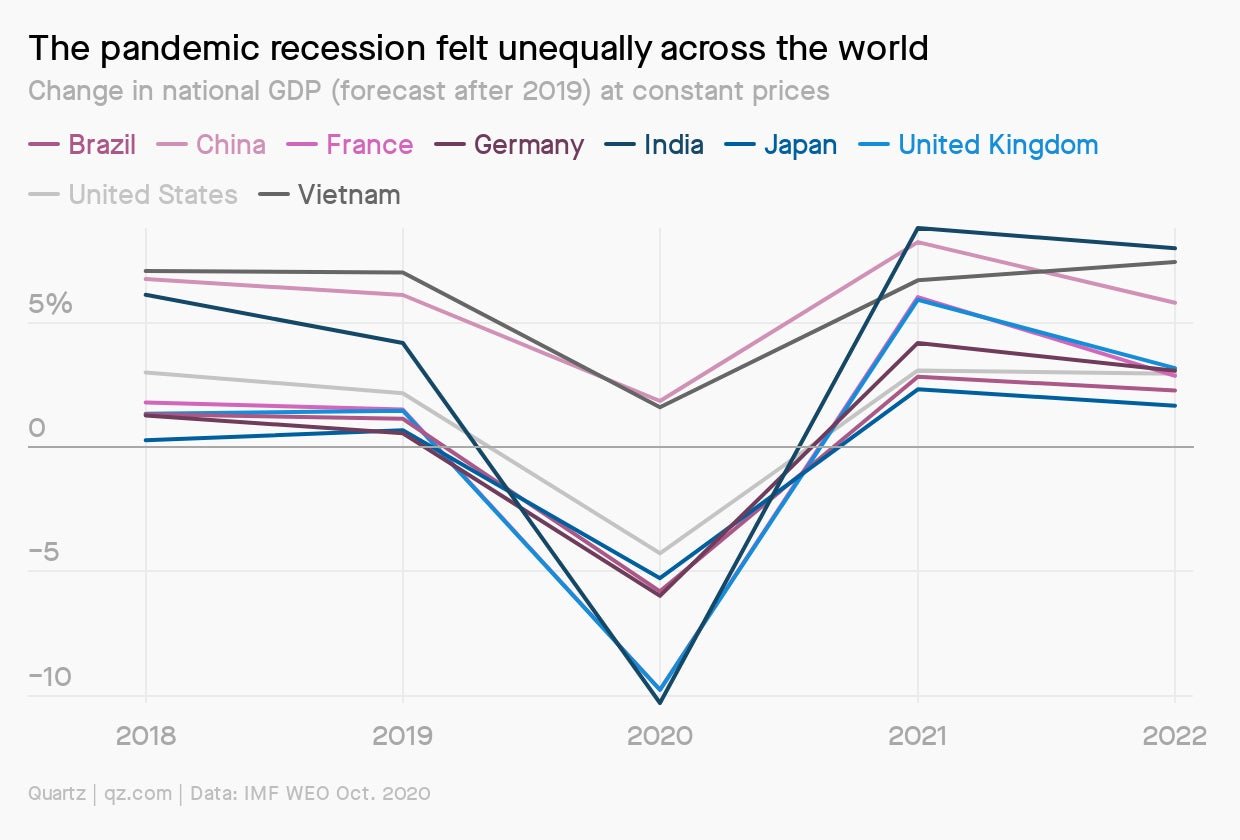Space Business: Great, power competition!
Dear readers,


Dear readers,
Welcome to Quartz’s newsletter on the economic possibilities of the extraterrestrial sphere. Please forward widely, and let me know what you think. This week: China’s big space agenda, Starlink in Albion, and climate spies.
🚀 🚀 🚀
2021 is going to be a big year for space… in China.
In 2020, we saw the US launch more rockets than its rival across the Pacific for the first time in two years, but that was thanks largely to the efforts of one private company, SpaceX.
Elon Musk’s vertically integrated space firm is out-launching Western competitors, even as it expands into human spaceflight, satellite manufacturing, and selling internet access. Until New Glenn or Vulcan arrive from Blue Origin and ULA, nobody is going to have a cheaper satellite launcher. Until Boeing wins NASA’s approval, nobody else is flying humans to orbit. Starlink won’t have a rival until OneWeb or Amazon’s Kuiper start delivering broadband to users.
Beijing, however, has been busier. Jean Deville at the China Aerospace Blog has written an excellent round-up of China’s year in space that also previews the country’s ambitions. Next year, its space agency expects 40 orbital launches, including the start of an eleven launch sequence to construct a new orbital space station. Like the US and the UAE, it has a spacecraft in the fleet heading to Mars as we speak, which will attempt to soft-land and deploy a rover.
And that’s before we talk about the “private” sector. While it is difficult to establish how divorced some ostensibly private Chinese firms are from state agencies, there are some big plans: A 13,000 satellite constellation akin to SpaceX’s Starlink is apparently being developed by a new state-owned corporation. Charming Globe, a remote-sensing firm spun out of a state institute, has now raised more money than Planet, the US leader in small-satellite surveillance. A number of other launch vehicle and satellite companies had big fundraising rounds in 2020 that suggest more activity in 2021, including Galaxy Space, which claims to be China’s first space “unicorn,” valued at $1.2 billion.
It’s difficult to compare, but that’s still likely not as much money as is sloshing around venture-backed US space firms. And yet it does underscore that American economic and national security advantages in space are hardly permanent. One thing we haven’t seen yet, but that Deville anticipates, is major Chinese tech firms like Baidou, Alibaba, or Tencent getting into space activities the same way that US tech giants like Amazon, Google, and Facebook have.
All this presents an interesting challenge for the incoming Biden administration, which will have space cooperation somewhere in the bottom-middle of its long China to-do list. What exactly to do? This little white paper (pdf) on how to manage the relationship has several good ideas, many of which can be roughly summarized as “start talking to China about space again.”
Perhaps the most constructive suggestion is to push for a joint statement on reducing space junk, with an aim towards establishing norms in orbit that will protect everyone there. With both countries plotting to launch record amounts of hardware into orbit in the years ahead, now’s the time to get started.
🌘 🌘 🌘
IMAGERY INTERLUDE
Here’s a shot of US astronaut Katie Rubins showing off the voting booth she would use to cast her ballot from space in the 2020 US elections, the results of which have been certified by all fifty states and the District of Columbia. American voters chose president-elect Joe Biden and vice-president elect Kamala Harris to serve the next four years in the White House.

Do you think it’s weird that I have to talk about the election in a space newsletter eight weeks later? Me too.
👀 Read this 👀
What will it take to get the global economy back on track in 2021?
This was the question my editors asked me late last year. My answer? Two things will affect global production above all else: The first is how quickly and where the pandemic is contained, and the second is how well policymakers around the world are able to repair the economic damage left in its wake. The latter is especially dependent on how American policymakers steer the world’s largest economy—its attempts at recovery will cascade across the rest of the globe, with consequences for every market. Learn more in our field guide to the economy in 2021.

🛰🛰🛰
SPACE DEBRIS
British invasion. Internet users in the UK report that SpaceX has begun testing its Starlink satellite internet network there, giving users an opportunity to try out broadband from space. This is the first report of Starlink going into action outside the US, which requires not just the technical infrastructure but also permission from the British government. SpaceX, naturally, did not respond to questions about when it had gained permission to operate a satellite ground station in the UK. The news is also intriguing in the context of the $500 million invested in Starlink’s main satellite internet competitor, OneWeb.
Green light for a green run. NASA says it will fire the engines of the Space Launch System rocket in its first full-duration ground test on Jan. 17. The demonstration, known as the “Green Run,” is the final test before the rocket is considered fit for service on a flight to the moon that the space agency hopes to perform in late 2021, but many expect to slip into 2022. Technical issues and the pandemic slowed progress considerably this year, and those delays are likely to cascade into future missions that require SLS rockets, including a hoped-for mission to return astronauts to the moon and a probe heading to one of Jupiter’s moons.
Climate spy. It’s no secret that that US spy agencies pushed forward satellite remote-sensing with their desire to peer at the military infrastructure of Cold War rivals. Now, Dr. Linda Zall, a longtime CIA analyst, has revealed a secret project within a secret project: Her team also declassified spy sat imagery to perform ground-breaking environmental analysis that revealed shrinking polar ice caps, deforestation, and dried-out lakes. This isn’t just important to scientists, however—ecological problems are also likely to catalyze future conflicts.
Will there be a space council? With the official resignation of Scott Pace, the executive director of the US National Space Council, it’s still not clear if the Biden administration will continue using the body to coordinate policy across various government agencies, but many experts think it should.
Your pal,
Tim
This was issue 79 of our newsletter. Hope your week is out of this world! Please send your 2021 predictions, economic wildcards, tips, and informed opinions to [email protected].